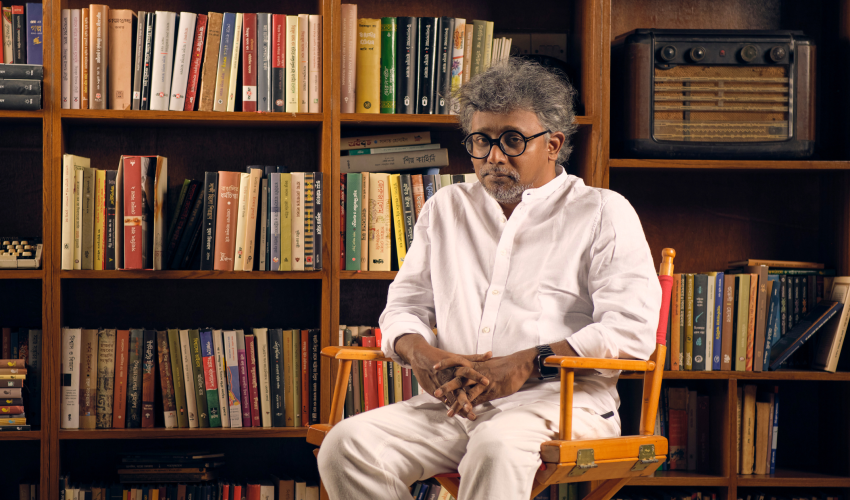By Ayman Anika and Sabrina Fatma Ahmad
With some fifteen hundred TVCs and a handful of critically acclaimed films and shows under his belt, it is not a stretch to call Amitabh Reza Chowdhury one of the most prolific directors in Bangladesh today. With his Rickshaw Girl winning accolades around the globe and Bodh racking up the views on Hoichoi, and fresh projects in the pipeline, he is definitely ending 2022 on a high note. MWB catches up with the man everyone is talking about
As 2022 reaches its conclusion, a lot of people are winding down for the year. Not Amitabh Reza Chowdhury, who’s just delivered Bodh, a truly bingeable banger of a psychological thriller as his comeback to OTT platform Hoichoi, three years after Dhaka Metro which marked his Hoichoi debut. The filmmaker has also recently released a short film Shun Shun on the OTT platform Binge, where he served as the creative director. He is currently gearing up to shoot a new web series called Golper Ghor Bari. Also in the pipeline is a new political thriller, which begins production in March 2023.
Since the foreseeable future is sorted out, we decide to pull his attention back to his past for an insight into the journey that brought him to this juncture.
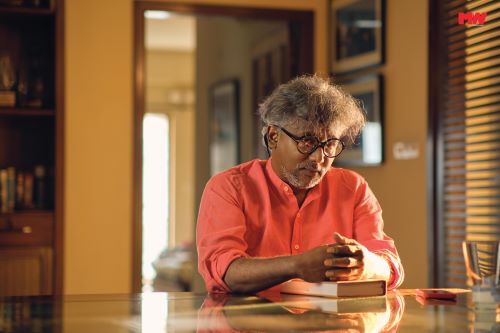
You were studying Economics in Pune, India. How did you go from there to working in film?
“I find inspiration in the lives of people around me, their stories. I thought about how to tell these stories, and dabbled in a few media. I quickly realized that writing alone didn’t satisfy me. I was fascinated by the interplay of light and shadow, so I considered a visual medium. Initially, I thought about going into theater. I had grown up watching films, but it was when I made a study of (Ritwick Ghatak’s) Meghe Dhaka Tara, from the film archives, that I figured that motion pictures was the right medium for me. “
From Aynabaji to Munshigiri to Bodh, there is a not-so-subtle socio-political bent to all your work. Is that deliberate?
“I actually wanted to be a politician, to be involved in social change. My work in film is my way of doing politics, to portray the issues that need examining.”
Aside from his feature films, web series, and television serials, Reza’s production house Half Stop Down is arguably the most sought-after for TVC’s, putting him in the vantage position of being able to influence the consumer behaviors of the masses.
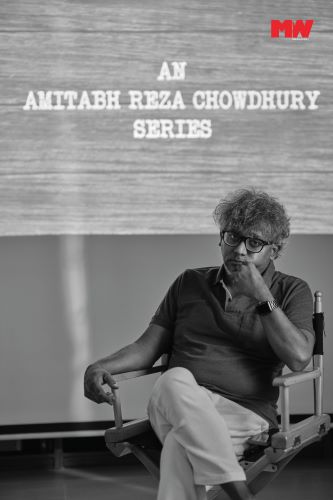
Speaking of Aynabaji, your first feature film raised the bar for what one could expect to see in a Bangladeshi film. It started a lot of conversations, cemented Chanchal Chowdhury’s status as one of the great actors of our time. And yet, the reports say it wasn’t profitable. Do you consider it a success? How do you measure success?
“Numbers don’t really matter that much to me. If it has an impact on people, if people are watching it, sharing it, talking about it, my job is already done.”
Speaking of success, Amitabh Reza’s Rickshaw Girl has been warmly received at film festivals around the globe. The latest feather in Reza’s cap was when the film won the top award at the Chicago International Children’s Film Festival. Rickshaw Girl has received the “Best of Fest” award of the 39th edition of the festival.
“A film that shows a teenage girl’s struggle to survive and provide for her family has become a success with young audiences. Rickshaw Girl doesn’t disguise how tough life can be but also celebrates the determination and talent of its central character”
Nick Powell
How did you come to work on Rickshaw Girl?
“I was approached by the project’s producer Eric J Adams in San Francisco, and he said he had a script based on a novel by Mitali Perkins. I took a look at it, and thought it was an interesting story, and an intriguing approach to the adaptation. I’ve always had a strong interest in our rickshaw paintings, so it was the prospect of incorporating, and thereby showcasing this dying art that provided the real incentive for me to get involved.”

Is there a particular genre you have no interest in exploring?
“Animation. I know it’s an exciting field and a lot of people are interested in it, but personally, I like working with flesh and blood actors and real life stories.”
Let’s talk about Bodh. How did you develop the story and characters?
Bodh has a very intriguing plot and I had first approached Hoichoi with the story as I had worked with this platform before. I was very particular about the characters – I wanted to cast Afzal Hossain from the very start and I decided to take screen tests for other characters. Announcements were made and a lot of big names in our industry showed up for the screen test.
After a lot of searching and pondering, I decided upon the final cast members. It has been a lengthy process.
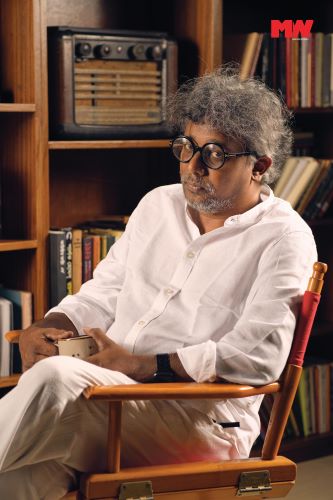
OTT platform or mainstream movies – which one is more to your liking?
Frankly, each of them has its own unique advantages and I like both platforms. But for me, the X factor resides in the story, and the plot can decide if the film is a masterpiece or a flop. I have enjoyed making movies on the OTT platform and hope to make more.
Above all, I want to tell stories. It does not matter whether it is via mainstream movies or OTT platforms, stories can be interpreted anywhere.
As a director, what do you look for while selecting the actors?
I believe that actors are vehicles who convey the message that I want to tell the audience through my films, so if a vehicle needs to perform well, it has to be dedicated and persistent. Also, I try to ensure or at least consider the fact that the actor whom I want to cast resembles the character of my story.
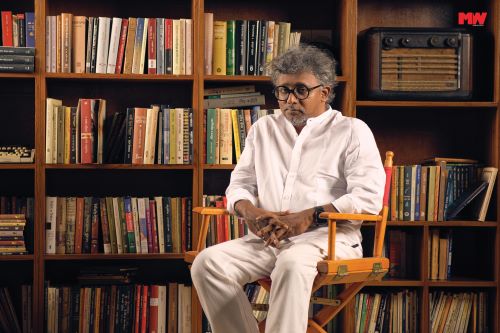
Of course, the skill, ability, and look of an actor are also important to me. And I want the actors in my film to surrender – to give their heart and soul to my film and try their best. Do you see any scope of improvements in our media industry?
This is a very big and complicated question, and improvements are possible everywhere. But frankly, we need to tell more stories and present a clearer picture. So, improvement is possible when we are able to tell stories more freely and can continue our practice without restriction.
While making a film, a director is bound to face many obstacles; success will be achieved when we are facing fewer obstacles and are overcoming these obstacles more easily. I believe that a director needs to be aware of the techniques to win certain perils and obstructions that come along the way – the more a director can master such techniques, the more s/he will be able to reach the audience.
Photos: Mehdi Hasan Noman




